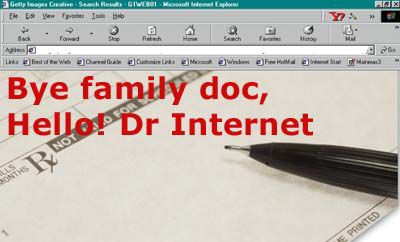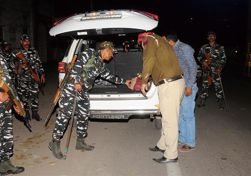
Ravi Gupta
I was about to call it a day when my phone buzzed. The caller was a young IT professional. He wanted an urgent appointment as he had acute pain in the right knee. I stayed back and waited for him, even as he kept calling me to ensure that I had not left.
As he entered my OPD chamber with his parents and sister, anxiety, stress and fear were writ large on their faces. He tried to show me his MRI report, but I decided to first examine his knee, which had started hurting a week ago without any history of injury. Clinically labelling his knee as lacking any sign of abnormality, I looked at the MRI films, which also appeared to be normal. Acceding to his request, I went through the report, which mentioned a sprain of the anterior cruciate ligament (which helps stabilise the knee joint) and some insignificant changes in one of the meniscuses.
Before I could give my opinion, he asked me if I could operate on his knee immediately. When I stated that no surgery was required, his face fell. He told me that he had gathered information from Google that the conditions mentioned in the MRI report could damage the knee if left untreated.
I tried explaining to him the significance or otherwise of MRI findings, but to no avail. I said it would not make any difference even if I used an arthroscope, but he hurriedly remarked that at least he would be satisfied that his knee was normal.
His father was a retired government employee, the mother a homemaker and the sister a student. They had dipped into their savings to get him treated in a corporate hospital. Succumbing to their pressure of performing a diagnostic arthroscopy, I asked them to sit outside my chamber and thoroughly discuss what I had told them during the consultation and decide whether they really wanted to go in for a surgery.
After a 10-minute-long conversation, the IT professional re-entered my chamber with his family members. He asked whether I could perform a diagnostic arthroscopy on both knees because he had intermittent pain/discomfort in the other knee also.
Reminding myself of the ethical dictum ‘A good surgeon is the one who knows when not to operate’, I spent another 45 minutes explaining that the MRI scan had the potential of ‘overdiagnosing’ and every ailment reported by the radiologist need not be treated. All this while, the patient kept showing me printouts of articles and research papers he had downloaded from the Internet, which suggested that he was suffering from a serious ailment. Finally, the family went away dejected.
This is not an isolated case. Almost every patient tends to search on the Internet about his/her symptoms before consulting a doctor. Many of them get ‘overtreated’ due to the fears and apprehensions triggered by the misinterpretation of online information. The practice being a universal one, a new ‘disease’ has become part of medical literature. It’s called ‘cyberchondria’, a new form of hypochondria.
Join Whatsapp Channel of The Tribune for latest updates.



























